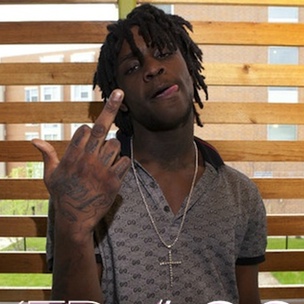Deeper than Rap: Chief Keef isn’t the problem

I have to admit, until recently I didn’t really know who Chief Keef was. I recognized his name from the hit “I Don’t Like,” but not much else. I starting inquiring about him more as he feuded with Lupe Fiasco, Lil Jojo got killed, and people started telling me, “Chief Keef is a problem.” The more I learn about him, the more I feel endeared to and concerned for him, as with many of our young Black males. As the rapper gets more and more attention, we have to realize that he is only one person. And like many of our youth, he is trapped in crises of identity, community and opportunity. Until we start to shift those things we can expect to see more loss in Chicago, Philadelphia, and other metropolitan cities.
Identity Crisis
“Know thyself”— two words that can be as simple or complex as we make them. The process of self-discovery is one fraught with benefit and consequences; nonetheless, it is a journey that all must undergo. While we spend a great deal of time telling our young people what to do and socializing them into what to consume, we often miss the chances to help them discover themselves and help them figure out what their role on the planet is, not just what they can make money doing.
Chief Keef, entrenched in a heavy gang culture, is a prime example. To him, Chicago’s Black Disciples is central to who he is and who he should be. Each of his tweets carries #300, a reference to the gang, and he’s been known to only state his age as “300.” A gang, for many, meets a craving for community; however, as this bleeds into an all-consuming sense of identity, the consequences can be large. Gangs are not likely to leave today or tomorrow. Chicago is no stranger to gangs; in fact, they are so much a part of the city’s history that there have been numerous attempts to organize them for progressive social action and governmental intervention to destabilize political alliances.
Filed under: Activism, Black Men, Black Women, Class, Ebony, Economics, Education, Electoral Politics, Gender, Grassroots, Hip-Hop, Masculinity, Politics, Prison, Public Policy, Race, Schools, Sociology, Youth


